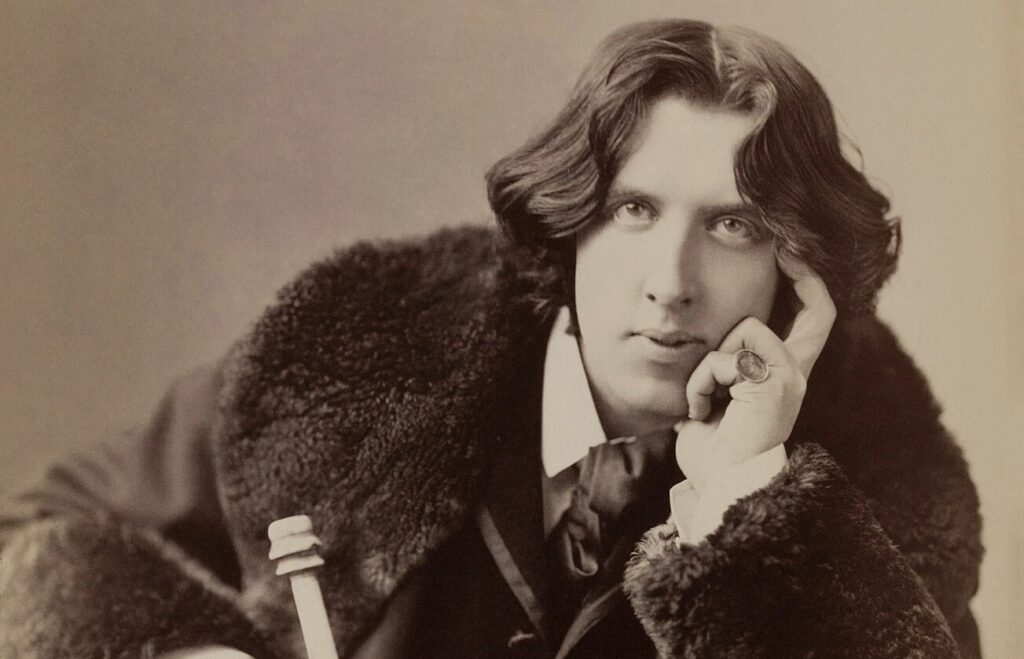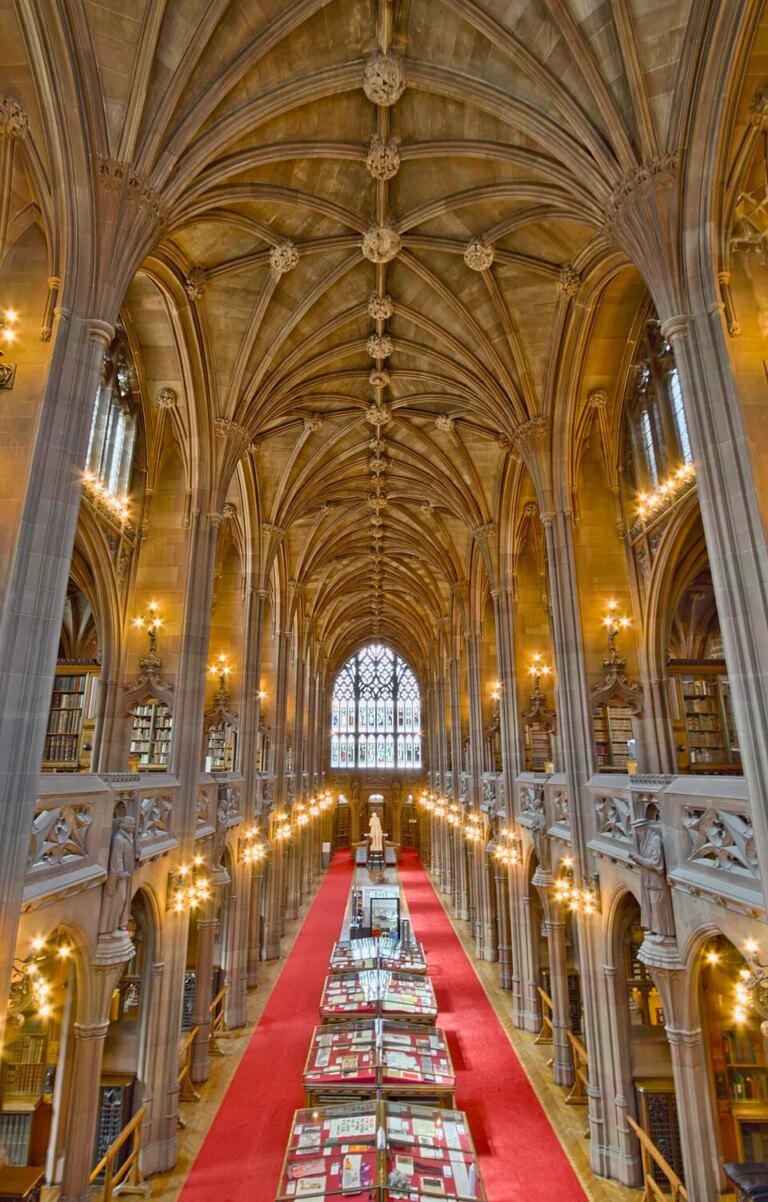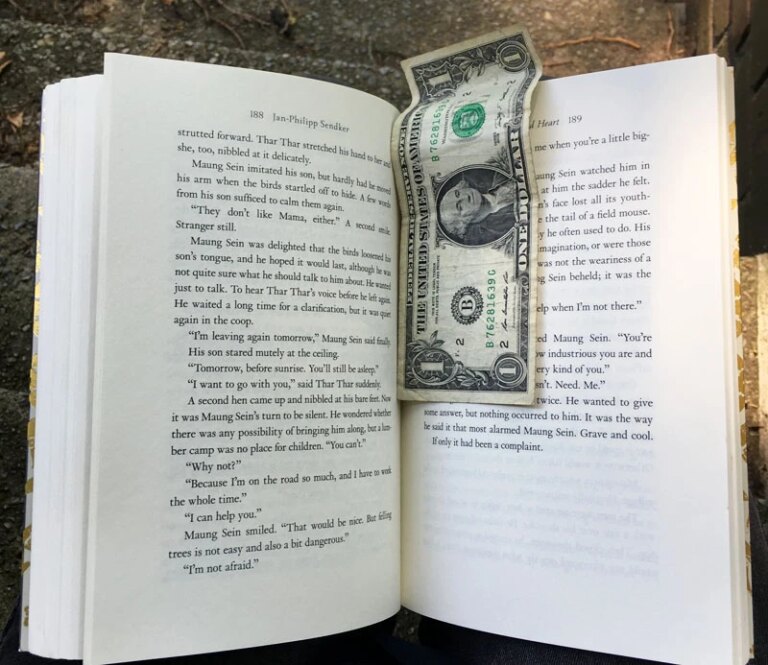Oscar Wilde was arguably one of the best-known personalities of his day. Let’s take a look back at his colorful life and legacy, which we continue to celebrate.
As popular as he was controversial, Oscar Wilde was a celebrated playwright, poet, and novelist with famous Victorian works such as The Picture of Dorian Gray and The Importance of Being Earnest. October 16th marks the 170th anniversary of his birth and we’re celebrating the best we know how, by discussing the writer’s genius and the legacy he left behind.
Act I: A Wilde Beginning
Oscar Fingal O’Flahertie Wills Wilde was born in Dublin to his father Sir William Wilde, a distinguished surgeon known for being colorful and a little scandalous, and his mother, known mostly by her pen name, Speranza. To say his parents played a part in making him the literary leading light we know him as today would be a bit of an understatement. Sir William Wilde was not only confident in his meticulous organization skills, but he also published material ranging from surgical texts to antiquarian topics.

Speranza, born Jane Elgee, began writing and contributing poems and articles to The Nation, after reading the poetry of Thomas Davis, co-founder of The Nation, at his funeral at just 19 years of age. In an interesting and somewhat eerie foreshadowing, 1864 proved an interesting year for the family.
Dr. Wilde earned his knighthood based on services he provided to the census, and in the same year, then Sir William was featured in a rather scandalous trial brought on by a former female patient, Mary Travers. Travers accused him of rape, then to further complicate the situation, Speranza wrote a defamatory letter about Travers. In the end, Travers appeared deranged and Sir William left the court with a damaged reputation.
Act II: Growing Up Oscar
From the beginning, Wilde’s world was both artistic and literary, surrounded by books, folklore, rhetoric, and compelling personalities. Wilde excelled throughout the course of his early education, earning him a scholarship to attend Trinity College in Dublin. From Trinity College, he ventured to Magdalen College in Oxford where he first gave creative writing a shot. His poetry became an instant hit, specifically his poem, “Ravenna” which won him the prestigious Newdigate Prize for the best English Verse composition.
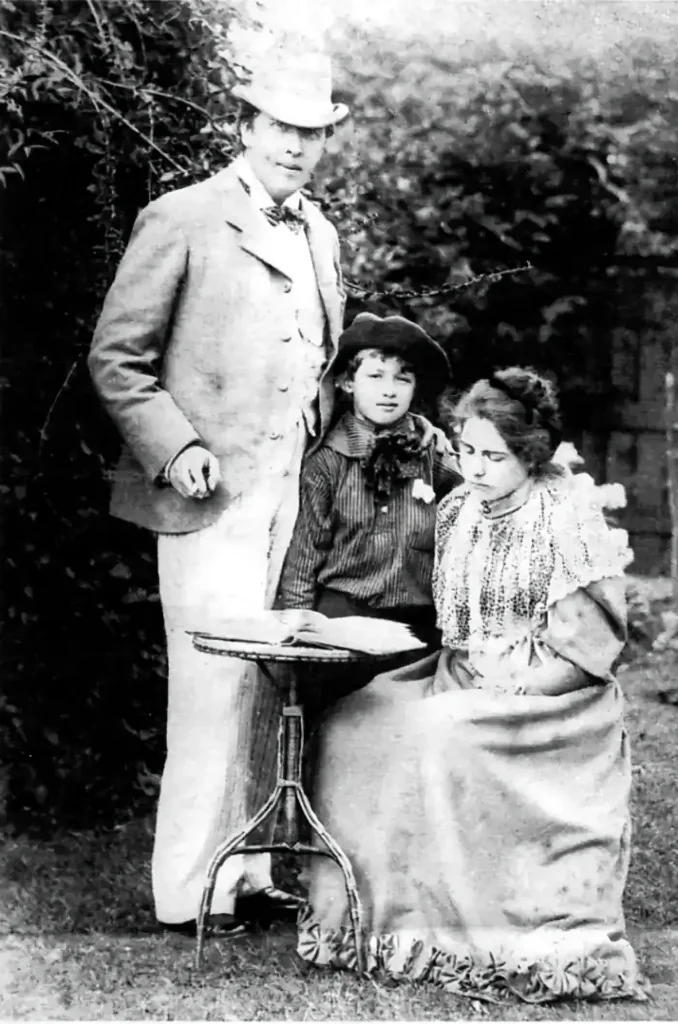
In 1884 Oscar married Constance Lloyd and while professionally his career continued to grow, his personal life was rumored to be one of infidelity and scandal. By this time Wilde had already lectured throughout North America, ultimately returning to London where he worked as a reviewer.
Act III: Writing Wilde
After returning to London, Wilde was asked to take over an English magazine known as Lady’s World which was beginning to lose its popularity. Wilde accepted the challenge and chose to focus on fashion and various lifestyle aspects of women’s lives, successfully saving the publication. While working as an editor, Wilde was also producing some esteemed works that have since become popular classics.
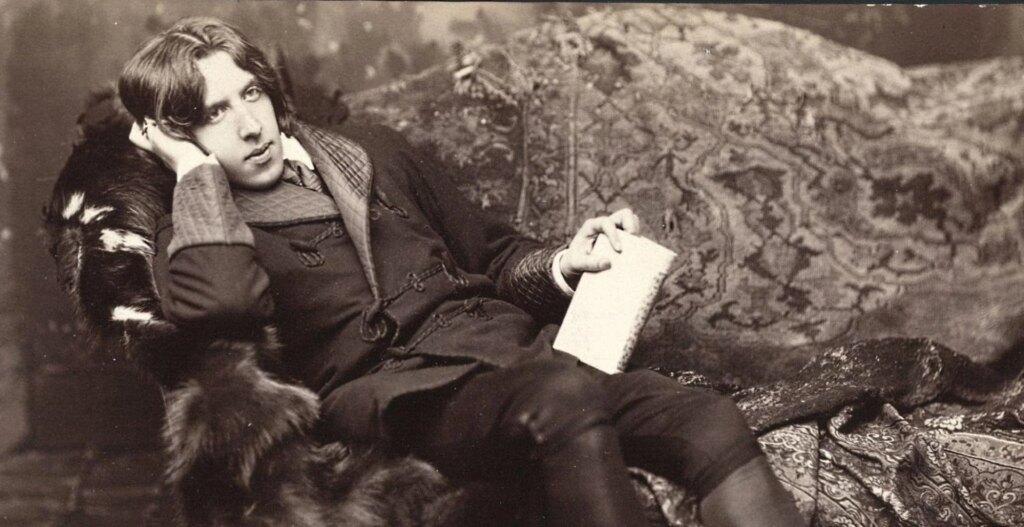
In 1888, Wilde embarked on a new writing adventure – children’s literature releasing, The Happy Prince and Other Tales. Then, in 1890, Wilde published one of his most famous pieces, which would be his only novel, The Picture of Dorian Gray, said to have been a reflection of Wilde himself.
Despite readers being shocked and frankly, offended, by his writing, he was still one of the most successful and well-known literary figures. In 1895, his play The Importance of Being Earnest became an instant hit, but the success was short-lived as Wilde found himself, or rather, his personal life, taking center stage.
Act IV: Another Wilde on Trial
After only being married to his wife for 7 years, Wilde found himself in a love affair with young aristocrat and poet, Lord Alfred Douglas, more affectionately known as ‘Bosie’. Their affair was kept very quiet because at the time homosexuality was considered a crime. Unfortunately, once Douglas’’ father found out about the affair, he set out to ruin Wilde’s career.

In fact, Douglas’s father planned to disrupt Wilde’s play one evening by presenting him with a bouquet of rotting vegetables. Wilde, however, intervened and prevented him from entering the theatre which led to a spectacle that ended in Douglas’s father accusing and exposing Wilde of homosexuality. Outrage ensued and Wilde’s friends urged him to flee to France where homosexuality had been decriminalised in 1791. Instead, Wilde opted to take the argument to court and sued Douglas’s father for defamation, a court case that cost Wilde his career and a short stint in jail.
Accusations of Douglas’s father went nowhere with the court being more concerned with Wilde’s sexual orientation calling upon several witnesses who testified to seeing several young men entering Wilde’s bedroom. The trial ended with no verdict, then a few weeks later at the retrial, Wilde was convicted of gross indecency and sentenced to 2 years of hard labor. Wilde was released in 1897 and spent his remaining years in Paris, poor and a shell of his former self. Wilde passed away in 1900 at the age of 46.
Act V: A Wilde Legacy
While Oscar Wilde saw and experienced his fair share of both tragedy and betrayal, it was through his words we got to experience humor, joy, and imagination. While late Victorians often considered him wrong, shocking, and offensive, today, we the readers know and understand that his reputation reaches far beyond literary achievement, as it is more than just his works alone that we continue to pay tribute to. But don’t just take our word for it:
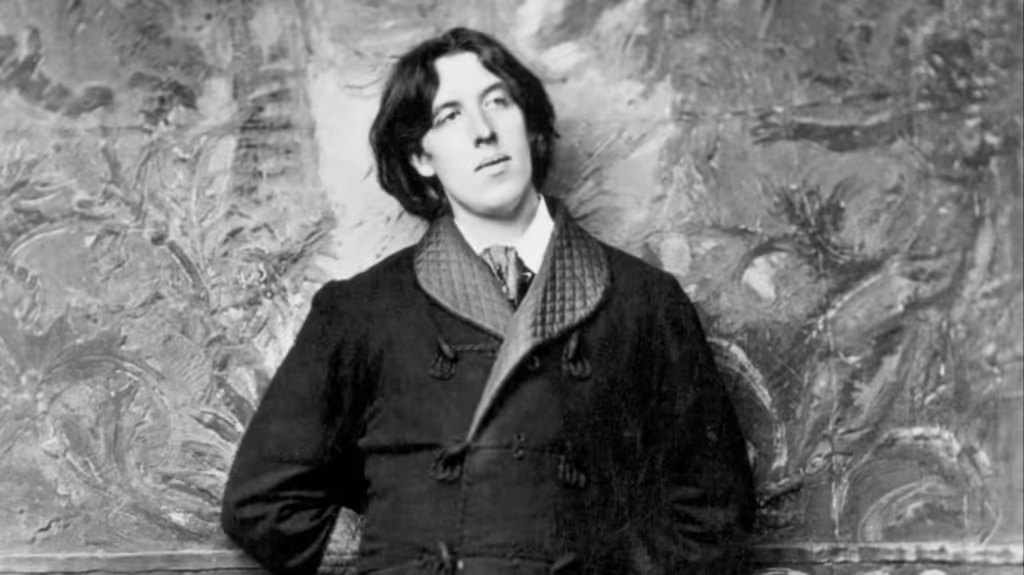
“I was a man who stood in symbolic relations to the art and culture of my age… Few men hold such a position in their own lifetime, and have it so acknowledged. It is usually discerned, if discerned at all, by the historian, or the critic, long after both the man and his age have passed away.
With me it was different. I felt it myself, and made others feel it…The gods had given me almost everything. I had genius, a distinguished name, high social position, brilliancy, intellectual daring; I made art a philosophy and philosophy an art; I altered the minds of men and the colors of things… to truth itself, I gave what is false no less than what is true as its rightful province, and showed that the false and the true are merely forms of intellectual existence. I treated art as the supreme reality and life as a mere mode of fiction.”
Join our community of 1.5M readers
Like this story? You'll love our free weekly magazine.





